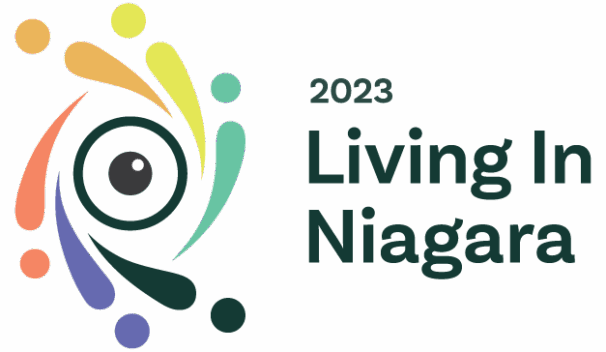The Early Childhood Community Development Centre (ECCDC) offers thought leadership, cutting edge training, innovative resources, and coaching services highlighting best practices and emerging trends in early learning and child care.
ECCDC provides Parent Direct Niagara, an online directory to help parents find information and links to programs, services, and resources for children and families in Niagara.
2015/16 Parent Direct Niagara statistics include:
- 786 program listings
- 160,733 visits, an average of 440 visits per day
- 339,712 page views
- Administrative support provided for 111 inquiries from service providers or parents
Parent Direct Niagara includes a directory of the 25 Ontario Early Years Centres in Niagara; 14 Family Resource Programs; and 5 Parenting & Family Literacy Programs in Niagara. Search the directory at: http://www.parentdirectniagara.ca/cat/interactive-learning-programs.
Source: Early Childhood Community Development Centre (ECCDC)
Retrieved From: http://eccdc.org/
Infant Mental Health in Niagara
ASQ (Ages and Stages Questionnaire) is a parent-completed monitoring and screening tool designed to help determine if a child’s development is on schedule. ASQ:SE is a tool to accurately identify children at risk for social-emotional delay. ASQ-3 screens 5 domains: Communication; Gross motor; Fine motor; Problem solving; and Personal-social.
The Niagara Infant Mental Health Pilot Project Advisory Committee was established in 2014, and is coordinated by the ECCDC. This committee is the planning body for piloting the ASQ:SE and ASQ:3 and the developmental support plan providing recommendations and linkages to the early learning and child care community in Niagara. The committee’s purpose is to pilot the use of the ASQ:3 and ASQ:SE and the developmental support plan with early learning and child care programs across Niagara to determine effectiveness and value.
Source: Early Childhood Community Development Centre (ECCDC) – Infant Mental Health
Retrieved From: http://www.eccdc.org/infant-mental-health/
New Ontario Early Years Child and Family Centres (OEYCFCs) system in Niagara
In February of 2016 the Ontario Ministry of Education announced the provincial plan to proceed with integration and transformation of provincially funded child and family programs across Ontario. As part of this plan, by 2018, all provincially funded child and family programs (Ontario Early Years Centres, Parenting and Family Literacy Centres, and Family Resource Programs) will be part of an integrated, cohesive system of services and supports for children ages 0-6 years and their families, now known as Ontario Early Years Child and Family Centres (OEYCFCs).
Niagara Region, with input from parents and caregivers, children, service providers and community organizations, has been tasked with creating a coordinated plan that informs the planning and implementation of the new OEYCFC system in Niagara.
The provincial objective is to combine all existing child and family programs funded by the Ontario Ministry of Education into one program model, to promote early learning and development; support parents and caregivers; and provide referrals to specialized services.
Source: Ontario Ministry of Education
Retrieved From: http://www.edu.gov.on.ca/childcare/plan_report.html
The above and below information is also included in the People Getting Started Sector.
Early Development Instrument (EDI) Results for Niagara
The Early Development Instrument is used across Ontario to measure the developmental health and wellbeing of senior kindergarten children. In the second half of the school year, senior kindergarten teachers complete a questionnaire for each senior kindergarten child in their class. This questionnaire measures developmental health and wellbeing in five general domains:
- Physical health and well-being
- Social competence
- Emotional maturity
- Language and cognitive development
- Communication and general knowledge
Scores are calculated to determine the ‘vulnerability’ of children in each domain. A child is considered vulnerable if they score below the 10th percentile in a particular domain. The results reflect children’s experiences before entering school and tell users about the supports provided or needed within a particular community, region, municipality or neighbourhood.
Since the Early Development Instrument has been implemented four times over the past 10 years in Niagara, it has allowed Niagara Region Public Health to monitor the developmental health and wellbeing of senior kindergarten children over time.
The charts below summarize the most recent results and compare to other years and to the province. In order to maintain comparability with the provincial averages, children who had identified special needs (diagnosis) were not included in this analysis. Data for children with special needs is available from Niagara Region Public Health, upon request.
| Domain (Early Development Instrument) | Percent of students who are vulnerable | ||||
| Niagara 2005 |
Niagara 2008 |
Niagara 2011 |
Niagara 2015 |
Ontario 2015 |
|
| Physical health and well-being | 13.3% | 13.8% | 16.2% | 16.7% | 16.1% |
| Social competence | 9% | 9.6% | 9.8% | 12.4% | 10.7% |
| Emotional maturity | 11.1% | 10.3% | 12.2% | 14.3% | 12.3% |
| Language and cognitive development | 8.4% | 8.6% | 7.8% | 7.9% | 6.7% |
| Communication and general knowledge | 10.2% | 11.1% | 10.8% | 9.3% | 10.2% |
The 2015 EDI data highlights Emotional Maturity as the primary concern for SK children in Niagara. Since 2008, there has been a steady and significant increase in the percentage of children vulnerable in this domain. In 2015, vulnerability increased above the provincial average.
Social Competence is also a concern, as there was a significant increase in vulnerability from 2011 to 2015, and it is also higher than the provincial average.
The vulnerability of SK children in the Language & Cognitive Development domain has not changed significantly over the years, but continued to remain higher than the provincial average in 2015.
Source: Niagara Region Public Health
Retrieved from: https://www.niagararegion.ca/health/statistics/child-health/school.aspx











